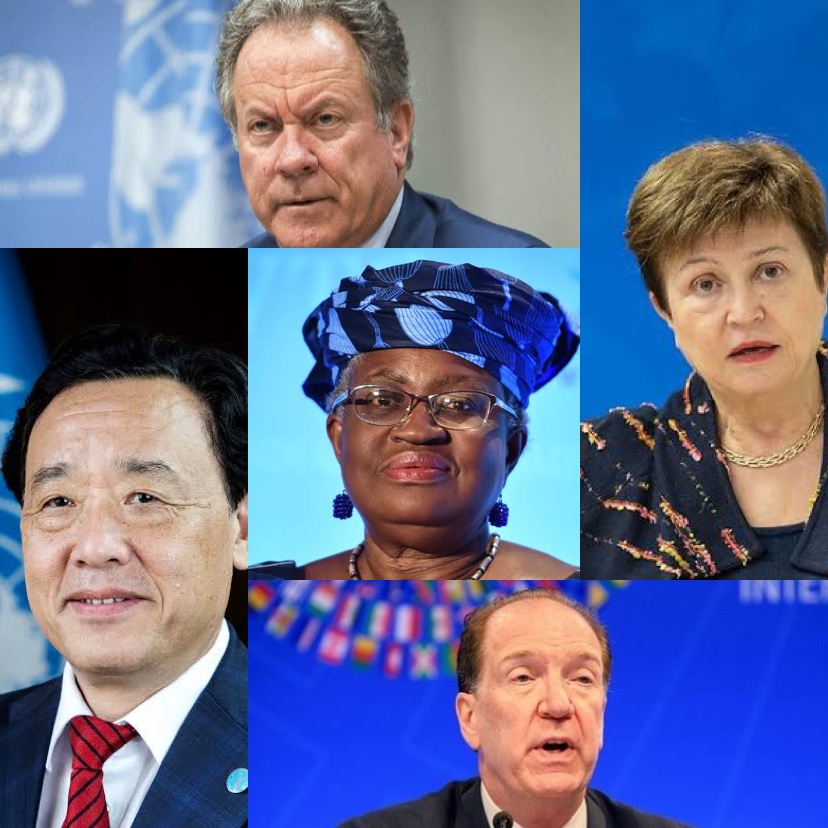By Zion Rufus
The severe disruption to food and energy prices, international supply chains, and global stocks which stemmed from the effects of the pandemic and worsened by the war in Ukraine have left lives and livelihoods of millions of families at risk.
In June 2022, the number of acute food insecure people increased to 345 million in 82 countries according to the World Food Programme (WFP), with about 25 countries reacting to higher food prices by adopting export restrictions which has affected over 8 percent of global food trade.
To tackle this prevailing situation, heads of the Food and Agriculture Organization, International Monetary Fund, World Bank Group, World Food Programme, and World Trade Organization have called for an urgent action to address the global food security crisis.
The heads which include World Trade Organization (WTO) Director General Ngozi Okonjo-Iweala Food and Agriculture Organization (FAO) Director General Qu Dongyu, International Monetary Fund (IMF) Managing Director Kristalina Georgieva, World Bank Group (WBG) President David Malpass, and World Food Programme (WFP) Executive Director David Beasley said: “We call for countries to strengthen safety nets, facilitate trade, boost production, and invest in resilient agriculture. Country specific needs should be identified and defined through a country-based process that mobilizes investments from multilateral development banks to connect short-, medium- and long-term opportunities.”
“And we commit to working together to support this process through the Global Alliance for Food Security, jointly convened by the G7 Presidency and the WBG, to monitor the drivers and the impact of higher prices and help ensure that investment, financing, data, and best-practice knowledge are available to countries in need.”
In addition, the bodies also identified long-term actions in four key areas to tackle the global crisis. The action points include: providing immediate support to the vulnerable, facilitating trade and international supply of food, boosting production, and investing in climate-resilient agriculture.






Comment
No comments found.